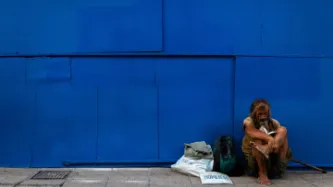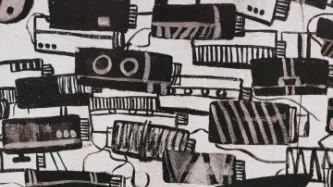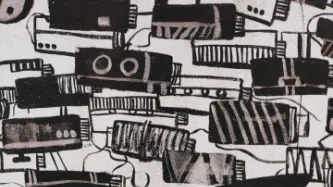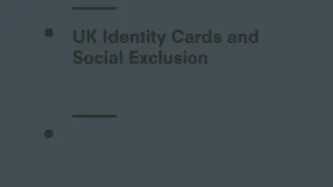Search
Content type: Examples
As part of a collaboration with Unicef and the World Bank, the Malagasy government launched Tosika Fameno. Tosika Fameno is an unconditional cash transfer programme aiming to support 189,400 households affected by the pandemic. The benefit aims to address the needs of citizens in vulnerable situations from the town of Antananarivo, Moramanga, Toamasina and Fianarantsoa, where lockdown measures were put in place.
However, the way beneficiaries were chosen could raise questions when it comes to…
Content type: News & Analysis
This article was written by Jamila Venturini from Derechos Digitales. The original version (in Spanish) is available here.
While at the international level there is a growing demand to ban the use of surveillance technologies until rigorous human rights standards are achieved, in Latin America we observe a new and silent tendency to acquire and use such systems to control access to social protection, i.e., to policies developed to reduce poverty, social vulnerability and exclusion…
Content type: Explainer
Definition
An immunity passport (also known as a 'risk-free certificate' or 'immunity certificate') is a credential given to a person who is assumed to be immune from COVID-19 and so protected against re-infection. This 'passport' would give them rights and privileges that other members of the community do not have such as to work or travel.
For Covid-19 this requires a process through which people are reliably tested for immunity and there is a secure process of issuing a document or other…
Content type: Long Read
Dear Sir/Madam,
Freedom of information act request
RE: Social media monitoring / social media intelligence
FOIA REQUEST
For definition of social media intelligence please see background explanation below. We further note the comments of the Office of Surveillance Commissioners Annual Report 2016 cited below.
1. In 2016 the Rt Hon Lord Judge, then Chief Surveillance Commissioner, wrote to all Local Authorities regarding use of social media in investigations. Please confirm whether you are…
Content type: Report
SUMMARY
In the UK, local authorities* are looking at people’s social media accounts, such as Facebook, as part of their intelligence gathering and investigation tactics in areas such as council tax payments, children’s services, benefits and monitoring protests and demonstrations.
In some cases, local authorities will go so far as to use such information to make accusations of fraud and withhold urgently needed support from families who are living in extreme poverty.
THE PROBLEM
Since 2011…
Content type: Long Read
The Chief Surveillance Commissioner, The Rt Hon Sir Christopher Rose’s Annual Report 2011 - 12 did not refer to social networks but to overt investigations using the internet as a surveillance tool, stating that:
“5.17 A frequent response to my Inspectors’ enquiries regarding a reduction in directed surveillance is that ‘overt’ investigations using the Internet suffice. My Commissioners have expressed concern that some research using the Internet may meet the criteria of directed…
Content type: Long Read
This piece was written by Aayush Rathi and Ambika Tandon, who are policy officers at the Centre for Internet and Society (CIS) in India. The piece was originally published on the website Economic Policy Weekly India here.
In order to bring out certain conceptual and procedural problems with health monitoring in the Indian context, this article posits health monitoring as surveillance and not merely as a “data problem.” Casting a critical feminist lens, the historicity of surveillance practices…
Content type: News & Analysis
CC: BY (Kirill Sharkovski)-SA
Este artículo fue escrito por Jamila Venturini, Coordinadora regional de Derechos Digitales. El artículo fue publicado por primera vez aquí. This article is available in English.
La implementación de programas que condicionan el acceso a servicios básicos por medio de vigilancia estatal y privada agudizan la inequidad imperante en el continente.
Mientras la brecha entre ricos y pobres se incrementa en el mundo, América Latina sigue siendo la región donde la…
Content type: News & Analysis
Picture: CC: BY (Kirill Sharkovski)-SA
This article was written by Jamila Venturini from Derechos Digitales. The original version (in Spanish) is available here.
How implementing social protection programmes that condition access to basic services to state and private surveillance exacerbate the prevailing inequality on the continent.
While the gap between rich and poor is increasing in the world, Latin America remains the most unequal region of the world. According to the Economic…
Content type: News & Analysis
Photo by Sharon McCutcheon on Unsplash
In May, the United Nations Special Rapporteur on extreme poverty and human rights, Philip Alston invited all interested governments, civil society organisations, academics, international organisations, activists, corporations and others, to provide written input for his thematic report on the human rights impacts, especially on those living in poverty, of the introduction of digital technologies in the implementation of national social protection…
Content type: Report
This report investigates the probable effect of the proposed UK national Identity Card system on people who are marginalised, who suffer social disadvantage or exclusion, and those who are disabled. The work focuses on the biometrics element of the government’s proposals (specifically facial recognition, ngerprinting and iris scanning).
The Report provides a specific assessment of the recently published biometrics trial conducted by the UK Passport Service (UKPS), and compares these…










